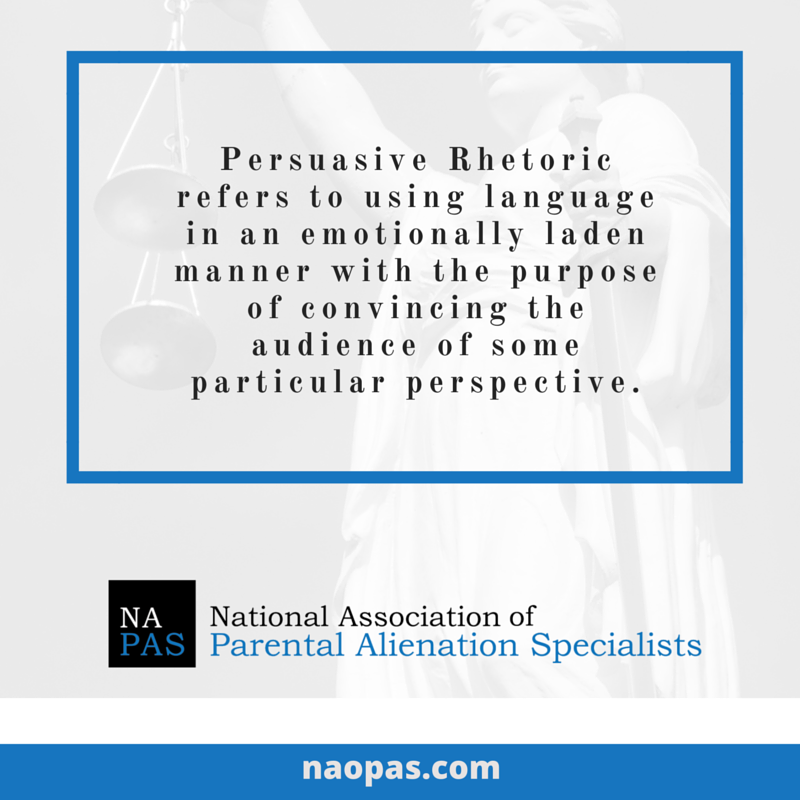Persuasive Rhetoric refers to using language in an emotionally laden manner with the purpose of convincing the audience of some particular perspective.
Persuasive Rhetoric is a tool for selling ideas, beliefs and positions on a given topic or subject. It is unrelated to truth. It only refers to the spin, the story and the goal of winning over the audience. Nothing in the message requires truth.
In the case of Parental Alienation, this concept is useful in that it describes a favorite modus operandi that the alienating parent uses to vilify the targeted parent.
In this context, the alienating parent will allege something either entirely untrue or grossly distorted regarding the targeted parent. It is done with such emotion and tenacity, that the audience is typically drawn into its message. Then the alienating parent does the same thing with another listener. Now there is a group of three who all believe the same either untrue or grossly distorted thing.
 There are now three voices in this chorus, and the intensity level tends to increase with the volume and the numbers of those involved. Then someone in this group of three relates this to another person, who questions it but is told that several other people told them the same thing, so it must be true. This new “convert” to the distortion then unwittingly spreads the distortion to someone else, and to someone else, and to someone else.
There are now three voices in this chorus, and the intensity level tends to increase with the volume and the numbers of those involved. Then someone in this group of three relates this to another person, who questions it but is told that several other people told them the same thing, so it must be true. This new “convert” to the distortion then unwittingly spreads the distortion to someone else, and to someone else, and to someone else.
Socrates, the story goes, is approached by a man who wants to tell him some urgent news. Before he does this, Socrates stops him and says he would first like to ask him three questions before he tells his story. The man agrees.
The first question is, “do you know the person to whom this news occurred?”
Answer: “No, but I know someone who does know them. “
Question two: “did you witness the event yourself?”
Answer: “No, but I spoke to someone who was there.”
Question Three: ” Is the news good or bad?”
Answer: “It would be considered bad news.”
Socrates reviews accordingly, “You do not know the person to whom this happened, you only heard about it from someone who says they were there, and it is bad news. Thank you, but I think I would rather not listen to this news.”
Rightly or wrongly, we humans do tend to be herd animals. Due to our wiring and our evolution, when the herd is exposed to some message that is potentially dangerous or at least negative, we do tend to give it extra weight, and then pass it on.
This is a self-protective reflex that is easily exploited by the alienating parent in their mission to obliterate the targeted parent in Parental Alienation cases.

Trackbacks/Pingbacks